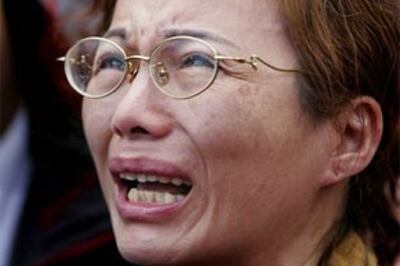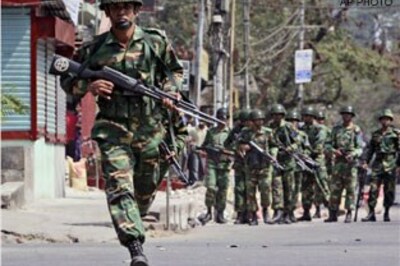
views
Aarthi Ramachandran, a freelance journalist, has attempted what many of her colleagues and political observers think is Mission Impossible: Decoding no less an elusive man than Rahul Gandhi, a politician who might play a crucial role in shaping the country’s destiny in the future. Her biography, though not definitive - given the inaccessibility of her subject - has definitely added much-needed depth to the political discourse and received fairly positive reviews. She shares her experiences in tracking and dissecting the life of the enigmatic Congress leader in an interview with City Express.
What prompted you to pen Rahul Gandhi’s biography?
A) I have been tracking Rahul Gandhi ever since he plunged into politics around 2004-05. After the 2009 polls, there was that euphoria around Rahul Gandhi following the unexpected success of the Congress in Uttar Pradesh. It struck me that here was a reclusive politician destined to play an important part in the country’s future. However, I couldn’t meet him as a journalist and my requests for an interaction went in vain. But I happened to meet him once as a commoner. In Oct, 2009, I wrote to his office about the issue of child beggars in the national capital who reports said were being evicted due to the Commonwealth Games. Surprisingly, I got a reply in two days and was called to meet him at 10, Janpath. It was a kind of Jan Darbar and I had a longish chat with him. He talked about the issue, its symptoms and finding a lasting solution from the grassroots level. He came across as a fine but unfocused politician. He had the right intentions. He directed me to some others in his office and nothing came out of my letter. But I felt it was worth penning his biography. It took me two years to finally finish it.
Did you face any kind of pressure to present your subject in a particular manner?
A) No. Not really. When I approached Rahul’s office, Kanishka Singh (his aide) indicated that they would prefer if I covered the Youth Congress and Rahul’s plans for the same. Of course, I couldn’t limit myself to that. Otherwise, nobody interfered with my work. As for feedback, there was none from the Congress.
During your research for the book, how far did you explore the personal life of Rahul?
A) This is not a book that focuses too much on personal life. I did cross-check details like his educational qualifications with Cambridge University etc where he had studied. I am convinced that a needless controversy has been raked up regarding his educational qualifications.
The Gandhis are a secretive family. Wasn’t that frustrating for you as a biographer?
A) It is their right. They have their reasons for it and I would not like to go into that. Their childhood was perhaps traumatic for a variety of reasons like the assassination of their father Rajiv Gandhi.
Does your book change a voter’s mind? Is your biography meant for political observers or for the middle class reader?
A) I had a certain reader in mind while writing this book. A reader like my mother, a retired school teacher. They are not passionate about politics but take some interest in the country’s affairs. Will it change a voter’s mind? It depends on how the reader takes it. It is an objective analysis of an important politician.
Where do you see Rahul going from here?
A) I have discussed this point in my book. It is up to him to find a role for himself. I am not so sure.




















Comments
0 comment